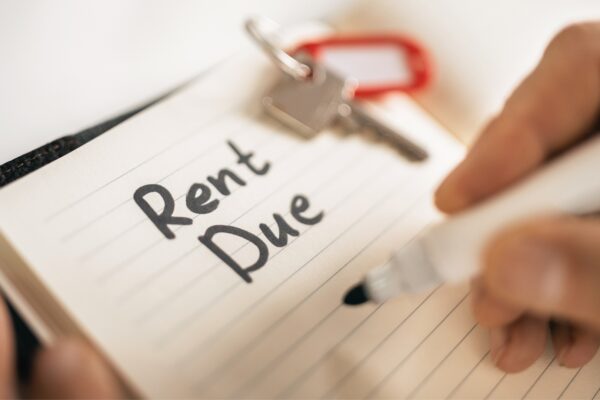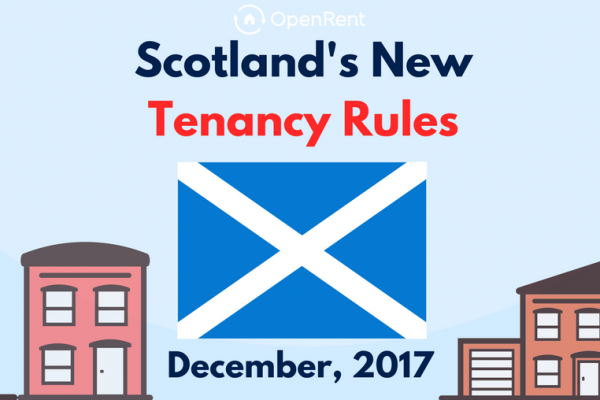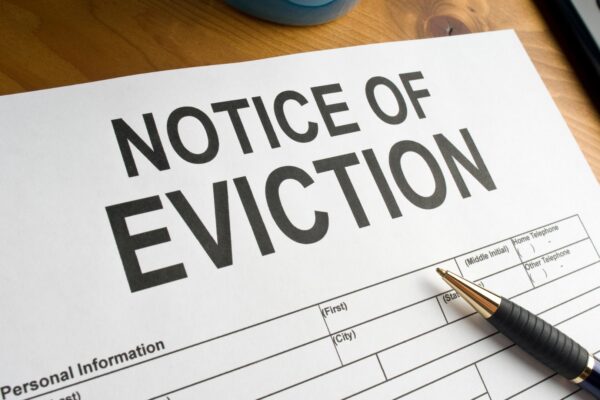If you’ve given your tenant the proper notice to end the tenancy but they haven’t moved out, you can apply for a possession order from the courts.
There’s plenty of support available for landlords wanting to evict their tenants, and the government has made all the necessary forms easy to fill out and available online.
This guide will also cover how to recover any rent arrears if that’s relevant to your situation.
- How did you serve notice?
- Which court do I apply to?
- How is the eviction date determined?
- Recovering rent arrears
Become an OpenRent landlord today and take a proactive role in managing your rentals. Find Out More
How did you serve notice?
The process for evicting a tenant at this stage will depend on whether you issued a Section 8 or Section 21 notice to end the tenancy.
In both cases, you will need to apply for a possession order, but the steps vary based on which notice you are using.
If you are relying on a Section 8 notice, you will have to attend a court hearing. However, if you issued a Section 21 notice, you can use the accelerated procedure, which doesn’t require a court hearing.
Although the government plans to abolish Section 21 notices, they are still valid for the time being. You can serve one legally and correctly using our free notice-serving tool.
Section 8: Possession orders
A possession order is a court order requiring the tenant to leave the property, allowing you to regain possession.
To obtain a possession order, you will need to submit the following forms to the court:
- N5 claim form for possession of property: This is where you indicate the grounds for your claim.
- N119 particulars of claim for possession: This form provides additional details about the tenancy.
- N215 certificate of service: This serves as proof that you properly served notice.
Please note that there is a fee for pursuing possession orders. If you use the government’s online portal, claiming possession will cost you £391.
You can use the possession claim online service if you’re seeking possession based on rent arrears, allowing you to complete court forms online and track your claim’s progress.
You’ll need to provide a rent statement for the past two years, showing due and received payments to support your arrears claim. The cost to issue the claim online is £391 too.
You might also be interested in…
- What is an HMO? How Do I Convert My Property?
- Pets in Rental Properties: What Every Landlord Should Know
- Joint Tenancy Guide: Understanding Joint and Several Liability
- How to Serve a Section 21 Notice to Tenants
- How to Be a Live-In Landlord: Rules, Rights and Managing Lodgers
Section 21: The accelerated procedure
The quickest way to obtain a possession order after a Section 21 notice expires is by using the accelerated possession procedure.
You can request a court to issue a possession order through this process if your tenants haven’t left the property by the end of the notice period.
Accelerated possession orders don’t require a court hearing, making the process much faster, as the court effectively goes straight to the possession order.
To begin the accelerated possession procedure, you’ll need to fill out an N5b form, which costs £391. Please note that there are different forms for England and Wales.
When submitting the form, it’s important to provide evidence that the notice was served correctly and that you have met all requirements.
The court will then send the application to your tenants, giving them two weeks to challenge it. The only defence a tenant can raise is that the Section 21 notice was invalid or that they didn’t receive it, so it’s advised to include this evidence when you submit the form.
Important: The accelerated possession procedure can only be used in cases where the landlord is not asking for a money order at the same time. However, you can seek a possession order through this procedure and then file a separate claim for rent arrears after the property has been vacated.
Which court do I apply to?
For both Section 8 and Section 21 notices, you apply to the nearest county court to the property that deals with housing possession.
Have a legal question? Reach out to our legal partners today for support. Get In Touch
How is the eviction date determined?
If the court grants a possession order, it will specify a date by which the tenant must leave the property.
If the tenant is still in the property after this date, you cannot enter the property and must instead apply to enforce the possession order.
You can read our full guide on how to obtain a warrant of possession here.
Recovering rent arrears
As mentioned earlier, the process for recovering rent arrears will vary depending on whether you issued a Section 8 or Section 21 notice to end the tenancy and whether you used the accelerated procedure to obtain a possession order.
Section 8
If you used a Section 8 notice to end the tenancy, you can apply to the county court for a money order at the same time as your possession application.
If the judge rules in your favour, they can issue an order requiring your tenants to pay their rent arrears, along with any court fees and your legal costs.
Section 21
Accelerated possession procedure
If you used the accelerated possession procedure, you will need to start a separate claim for any arrears owed to you through the government’s money claim online service.
You can read our complete guide on how to bring a claim for rent arrears using money claims online here.
Standard possession order process
If you intend to use the standard possession procedure, you can claim both possession and arrears simultaneously as part of the same process.
You can begin that process here for a fee of £391. However, unlike the accelerated possession procedure, this process will require a court hearing. If your main priority is regaining possession, you may be better off choosing the accelerated possession route.
Protect your rent payments and peace of mind with our Rent Guarantee Insurance Scheme.
Find Out More
How do I prove my tenant is in arrears?
The best and most effective way to prove rent arrears is by providing a detailed and accurate schedule of arrears.
This schedule should outline all rental periods, the rent due, and the rent paid since the start of the tenancy. Ideally, it should also include the payment methods and any relevant payer details (such as account numbers or whether payments were made by direct debit etc.).
You should also include all correspondence related to the issue, such as notices for rent due, payment reminders, and any agreements or leniencies you’ve granted regarding overdue rent.
The more warnings you have given your tenant about their outstanding rent, the harder it will be for them to contest your claim, and the more likely it is that they would have made the payment.



